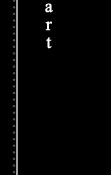




{rebecca tillett} enter gallery here If Rebecca Tillett were a superhero she would undoubtedly possess the power of invisibility. Of course, for a photographer this power would unearth endless opportunities to capture the perfect shot; the ultimate authentic moment. Unleashed would be the chains of etiquette, self consciousness and social customs. One could shoot at will in public and private. However, for Tillett this component of invisibility has another meaning, a deeper indicator. One that speaks to the woman of her past, and the woman of her future. In this, Rebecca Tillett is a wealth of dichotomies and mysteries. Like her heartbreaking work, her life seems to be powered by the amalgamation of a beautiful terror and complexity awash in a narrative of light and color. Shy and introverted as she is, it is really a wonder why Tillett is a photographer at all. Admittedly she is not a people person. And this fact is compounded by the fact that she shoots, primarily – people. But the fact that she is a photographer is actually, perfect. Like the cameras she employs, with their optical devices – everything in Tillett’s work mirrors something else. Everything is a lens. A microscope. Capturing one element. One moment. One flaw. One fear. One terrorizing moment of beauty. Always with a camera in-hand, even if it’s just a toy camera – Tillett has a near-anxiety about capturing the life and every moment that she can. With an uncanny eye for composition and color – leaving the capturing of all possible life moments to Tillett would, and does, benefit the rest of us. However, there are complications within her grand calling. First of all, while Tillett craves to photograph people on street, candidly – she won’t for fear that she is invading. And being a voyeur. For her it feels non-consensual and maybe even dirty. This is also coupled with the fact that, due to her near-neurosis of wanting to photograph everything around her – she ends-up not remaining present and living the moments that she’s photographing. Rebecca Tillett has a complex understanding of the world that may, in the end, interfere with her perception of the world. Luckily for her, she has cameras. And a tremendously cultivated skill set that is encouraging and driving her to look inward. As a photographer, Tillett is not an academic. She won’t even pretend that she is educated in art history. Or even in photography for that matter. And it may be precisely because of this that her work is so astounding. Unaware of the learned boundaries and possible limitations taught in the classroom, Tillett has been shooting since she was a teenager. Predicated on finding and cataloging “happy accidents”, she has come to refine her skills and created a very idiosyncratic look to her work. Most of her shots are staged. However, she is always looking for those happy accidents, wherein everything is on the way to perfection. While her models are dressing, she’ll snap away. When they’re contorting into position, she’ll snap away. In all of her work the lighting is raw. Even harsh. In this Tillett’s final product mirrors her aim. Because in the end she is interested in capturing raw moments – when the subjects don’t know they’re being shot. What this affords us all as viewers are vibrantly colored compositions with a rich narrative. The meanings in Tillett’s pieces unfold within the rich stories, and the engaging narratives. Photographic more than a literary stories, her work often leaves the onus on the viewer to navigate the piece carefully, to attempt to find a way to look outside of the frame of picture – to see what else is going on in those rooms; and to solve the elementary questions of who, what, where and when. But don’t get it wrong – most of the meaning is right there, easily accessible and – brilliantly imparted. The analogies and contradictions of Tillett’s work and her life are, for this author, at the forefront of consideration. To begin to understand Tillett is to comprehend the picture of her navigating the world as a raw nerve; in harsh lighting; and always reaching for authentic experiences. One pronounced theme in her work is the past. In part plagued by her own history, Tillett sometimes agonizes over what came before. Within this apparent agony is the seeming contradiction that the past provides more satisfaction. A respite. In this, another mirror to her life is once again set – as she ubiquitously utilizes elements of yesteryear in her photograph’s backgrounds, settings, clothing and even signs. Working within this element of time, Tillett sets up the ultimate mirror in all of her work: of reflecting the past straight into the future. For us. But probably more importantly, for her. Another nearly-bizarre element of Tillett’s work is the fact that while she is overtly shy, she is also the subject of a lot of her work. Sometimes it has been born from necessity. But what’s intriguing about this is the fact that many of the shots are nudes – some more revealing than others. In here, however, there is an explicit comfort for Tillett – a place where she, oddly enough, loses her self and is able to get away from her complicated histories and elements of self doubt and the strangeness of living in this universe. And while there may be a beautiful terror apparent in all of Tillett’s work and in her life – she is no less human than the rest of us. She is sweet and endearing. In listening to her I get the sensation that she is explicitly wrestling with the fiery demons and the wondrous beauty, all at once. Endlessly moving forward she is, with both eyes on the past. To keep up with Rebecca Tillett’s exhibitions, publications and progressing work, go to: www.rebeccatillett.com. |









